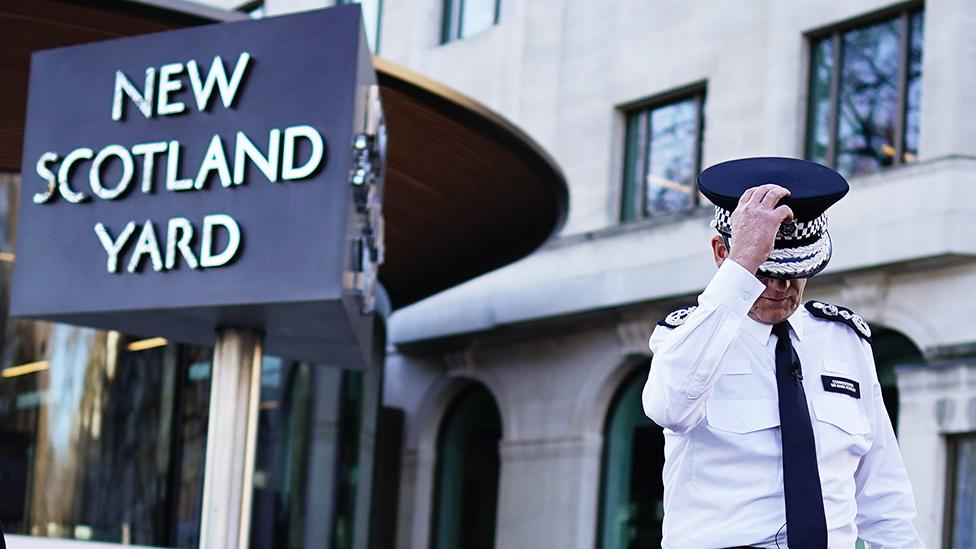Met Police: Force puts 6,000 through community trust training
- Published
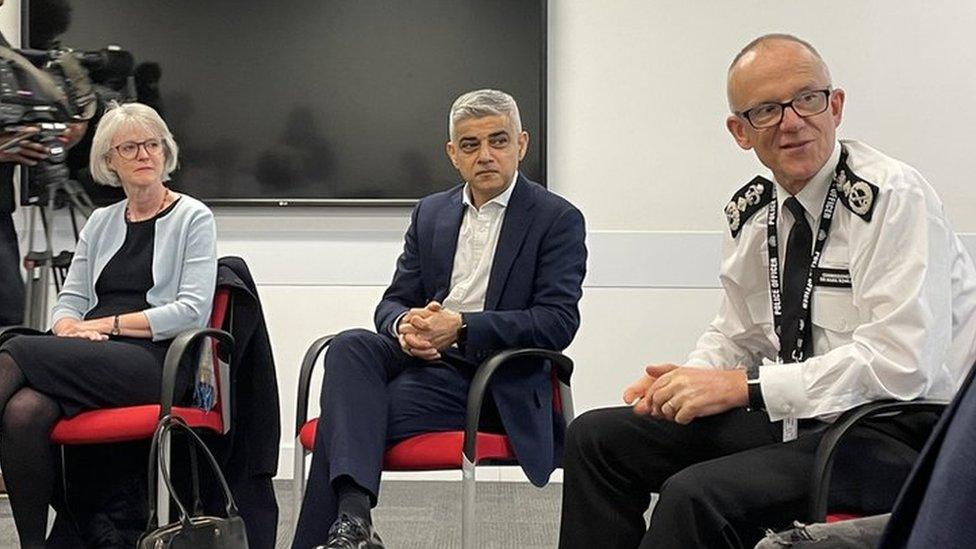
Left to right: Sophie Linden, Sadiq Khan and Sir Mark Rowley at Hendon Police Training College
The Met Police is undergoing rigorous training to restore trust among minority communities in London.
It has now put 6,000 recruits through the training and has around 170 community leaders guiding the process.
The officers are participating in sessions with community members who share their experiences on topics such as domestic abuse and stop and search.
It is part of the mayor's 2020 Action Plan, running since 2021.
The Met Commissioner, Sir Mark Rowley, speaking on the same day as the mayor announced the latest phase of the Action Plan, said that the force was looking to invest in new "psychological tools" to help weed out recruits joining the force with "malign motives".
"The way we are going to build trust in the Met Police is by having a stronger relationship with our communities," he said.
"That requires us to put their thinking first," Sir Rowley added.
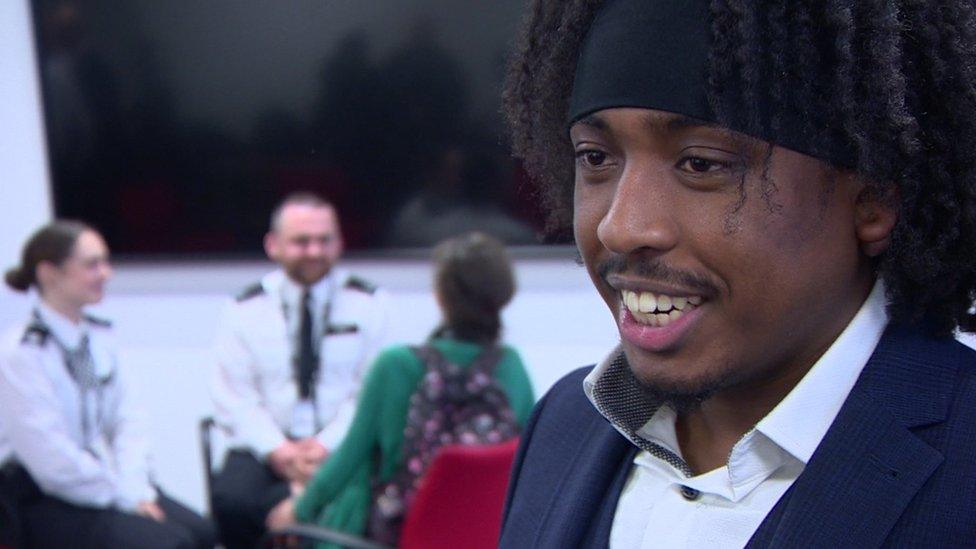
Alex McArthur-James said he is "trying to bridge the gap" of people's trust in the plice
Alex McArthur-James works at the Lambeth Youth Council.
"Growing up, I haven't had any positive experiences with the police apart from this," he told BBC London.
Mr McArthur-James said he was subjected to a stop-and-search by officers at the age of 14 and was traumatised from the incident.
"For a long time I held a deep hatred for the police until two of my cousins joined the force," he said.
"I'm trying to bridge the gap and be the change that I want to see within my community," Mr McArthur-James added.
'A greater willingness'
The mayor and deputy mayor for policing and crime, Sophie Linden, visited Hendon Police Training College with the commissioner to speak to new officers and see the sessions in action.
He said: "We're commissioning some research to see whether there are any different tools we can use out there, to better psychologically assess officers - is there anything out there that can help us spot people, the small number that might be joining us with malign motives. So we're determined to tighten up on that."
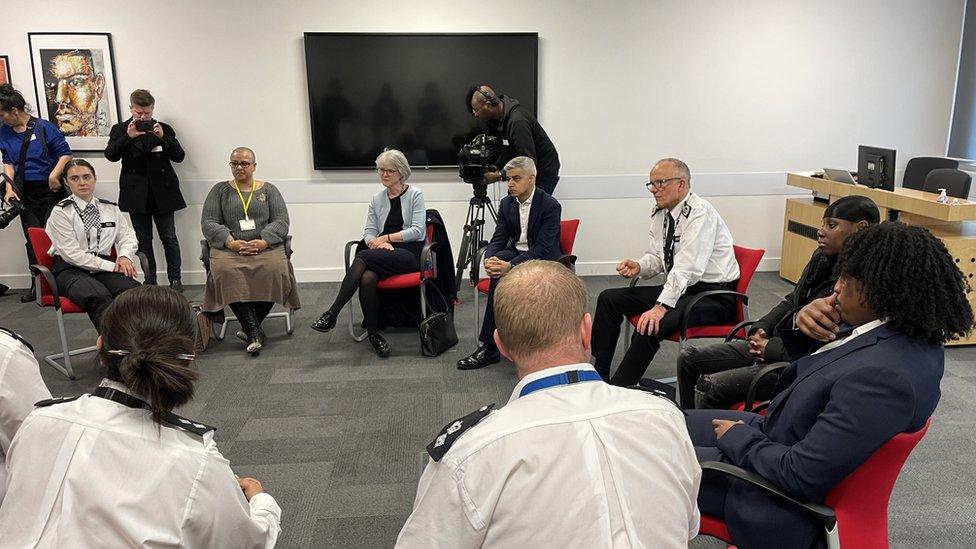
The mayor also announced funding for the next phase of the 2020 Action Plan
He added that he was now seeing "a greater willingness" among officers to report unacceptable behaviour within the organisation, which was helping him to remove "problematic individuals" from the force.
"Clearly we have too many people who are toxic and shouldn't be here, but we have tens of thousands of great men and women, police officers and police staff," he said.
Minority communities have some of the lowest levels of trust in the police.
The Casey Review into the Met's culture and standards, published last week, laid bare deep and widespread failings in the force and have prompted more change.
The 363-page report detailed a string of shocking accounts such as rape cases dropped due to a broken freezer and a Sikh officer's beard cut "because it was funny".
Lee Lawrence, community leader involved in the sessions, said: "When there is damage you need to go through a healing process. The more that we can build understanding through lived experiences the better those officers are going to be.
"The past influences where we are today and if we are not aware of that then it is easy for there to be misunderstandings.
"If we cannot take the time to understand each other then how can we move forward? What we do today influences the future."

Follow BBC London on Facebook, external, Twitter , externaland Instagram, external. Send your story ideas to hellobbclondon@bbc.co.uk, external
Related topics
- Published29 March 2023
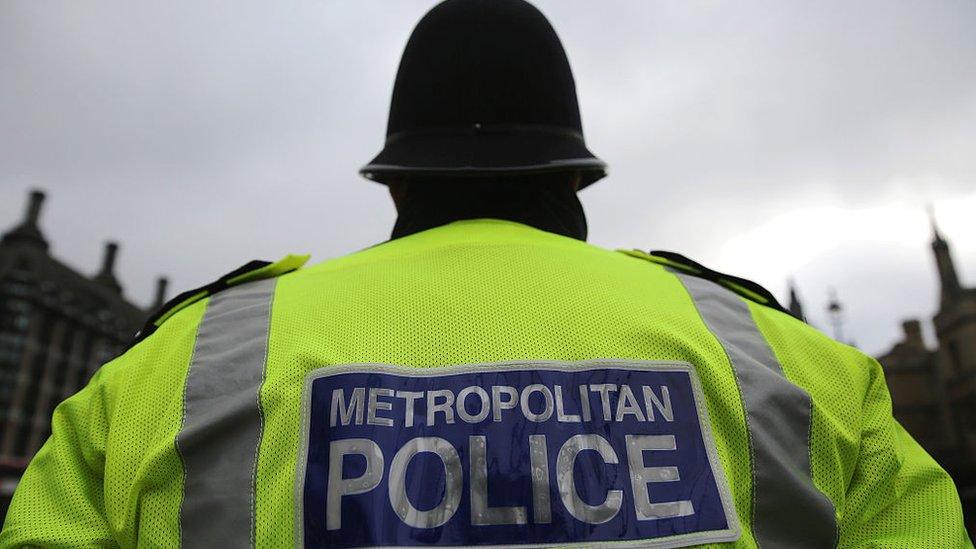
- Published21 March 2023
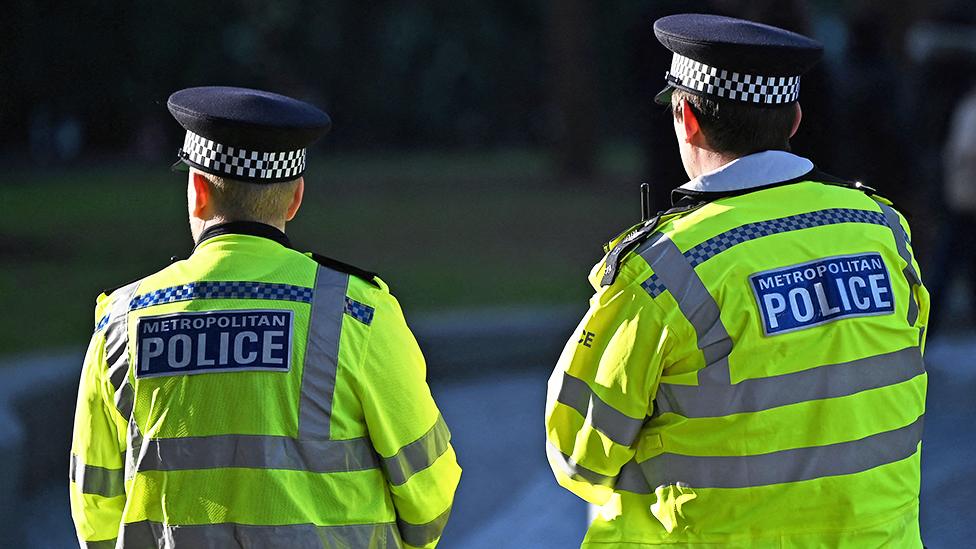
- Published21 March 2023
